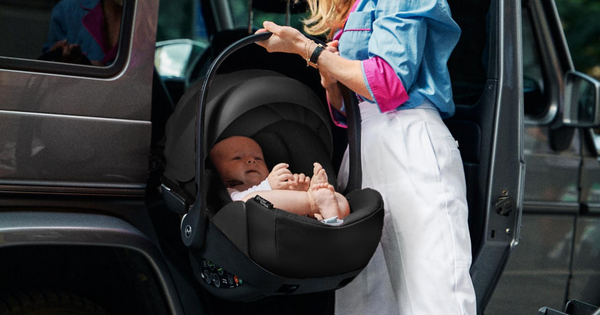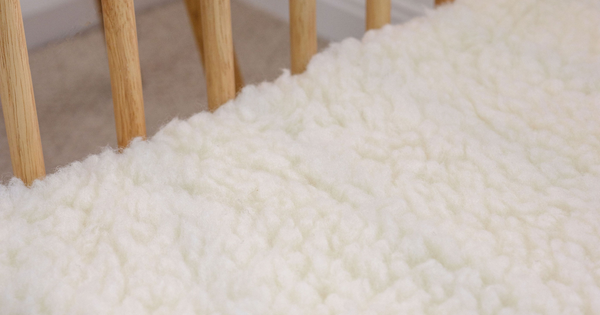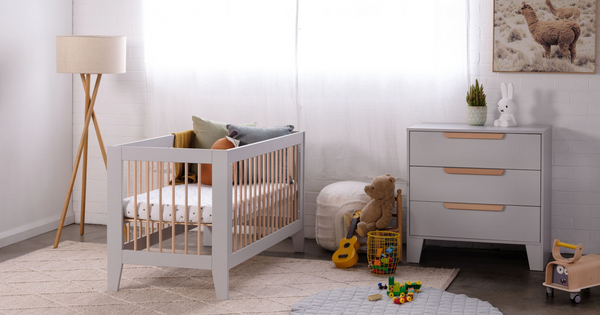From NICU to nursery: Tips for bringing your premmie home

Transitioning your premature baby from the hospital to the nursery is a momentous occasion filled with excitement, hope, and probably a pinch of nervousness! If you're part of the 8% of Australian parents whose little ones arrive a tad earlier than expected, this guide is your reassuring roadmap.
We understand that the NICU experience can be an emotional rollercoaster, but the prospect of bringing your baby home is the light at the end of the tunnel to hang on to. Rest assured, the hospital will only discharge you when they're confident that both you and your baby are prepared for this next stage. Not to mention, your baby’s healthcare team is your steadfast support system, here to equip you with the knowledge and skills you need.
So, strap in as we walk you through some small things you can do both while still at the NICU and once you are home to make the transition as smooth as possible for both you and baby.
Things you can do while you’re still in the NICU
Preparing to bring your premature baby home from the NICU can be both exciting and a bit daunting. Here are some practical things you can do to help you get ready for this important transition:
-
Car seat safety:
Soon you’ll be leaving the hospital with a VSP (very special passenger) - hooray! But before you do, you'll need a car seat that's just the right size for your premmie, keeping in mind that not all car seats or capsules are designed for such pint-sized passengers. If your baby's NICU arrival caught you off guard, don’t fear; you can always rent one until you buy one, or until your little one fits in the one you originally bought. Before you hit the road with your newest little traveller, have a chat with your hospital team to make sure your car seat meets their safety standards. And don't forget the pro touch – have it professionally installed in your car by the experts. Choosing the right car seat is important, so keep reading to find out what to look for, as well as three of the best capsules suitable for premmies in Australia.
-
Spring clean like Beyoncé is coming to visit:
Make your home and car as clean and germ-free as possible. Premature babies have delicate immune systems, so it’s best to ensure a fresh and spotless environment fit for a VIP! As a NICU parent, we know you've got a lot on your plate, so try tackling one small area at a time, and don’t be shy to delegate – many people would be happy to help a friend out practically!
-
Get the safe sleep lowdown:
Take the time to brush up on the safe sleep guidelines for when you take your baby home. The sleep positions may be a little different at home than at the NICU, so make sure to speak with your little one’s bedside nurse, paediatrician, neonatologist and other experts from your baby’s care team to be as well-informed as possible.
-
Perfect your swaddling technique:
Learn the art of swaddling to help your baby feel secure and comfortable. Mimicking the womb is especially helpful for premmies and can even help them settle into sleep. The great news is that your neonatal team are swaddle wizards, so the hospital is the perfect place to learn and perfect your skills. And if that means your dog or cat spends a few minutes a day wrapped up like a burrito for the cause? Even better - just remember to snap a photo you can show your little one in a few years for future giggles!
-
Start filling out your calendar:
Get organised with follow-up appointments and contact info for your baby’s healthcare team. Premature babies can come with their own set of rules and schedules, so keep those contact details handy. Your baby's social calendar is about to get busier than yours!
-
Emergency prep:
Consider taking a baby first aid or CPR course to boost your confidence in handling any unforeseen situations (just in case). Being prepared can reduce anxiety and ensure you can respond effectively in emergencies once you’re at home. Thankfully it’s unlikely that you’ll need to put your skills to use, but the knowledge that you could save the day will sure leave you feeling like a superhero!
-
Master the machines:
Some premmies may need a bit of extra help when you first take them home. If your little one comes home with oxygen equipment or a sleep apnea monitor, now is the time to ask all the questions and make sure you know the machine’s ins and outs while you’re surrounded by experts at the hospital. Take 10 minutes and read the manual – don't wait until you’re running on no sleep to figure out where the beeping is coming from in the middle of the night!
-
Start building that support network:
Research local support groups and playgroups, especially those for parents of premature babies (most states have a website to help you find a group near you). Sharing experiences with others who understand can be comforting and informative. Try to get connected while in the NICU, as well as once your little one has made the transition home. It's like joining a club where everyone speaks ‘premmie’! The NICU/ premmie experience is not only unique but can be quite an emotional rollercoaster, so sometimes just being around people who truly ‘get it’ or are in the thick of it as well can make all the difference.
-
Soft launch your baby to any pets:
If you have any pets, this is a great time to start gently introducing them to the idea of a new family member by bringing home a blanket or onesie with your baby’s scent; a soft launch of sorts, if you will. Gradual introductions and positive associations can help ease the adjustment for the furry members of the household and make the Big Day that little bit smoother.

What kind of car restraint is suitable for a premmie baby?
Preterm babies have unique needs when it comes to car seats, whether you choose to start with a convertible car seats or capsules. Here's what you should look for when choosing a car seat for your premmie:
- It needs to be suitable for a low birth weight. While there are many car restraints designed for use from newborn, premmie babies require options with extra padding and support for the tiniest of passengers.
- Read up on the car seat or capsule’s safety rating. With precious cargo on board, you don’t want to settle for anything less than the best.
- For maximum safety you want to look for features like ultra side-impact protection, a 5-point harness, lie-flat ability and an adjustable headrest.
Three options available in Australia that meet these requirements are:
-
Cybex Cloud Q
Suitable from 1.8kg. Together with the removable seat insert, 11 height adjustable headrest and harness positions (the length of the harness changes automatically when the headrest is adjusted) ensure the correct restraint position for premature babies ready to leave the hospital. Travel system compatible.
-
Britax Safe-n-Sound Unity ISOFIX
Multiple position shoulder harness and crotch straps for use with low birth weight and premature infants without restrictive medical conditions. ISOFIX and travel system compatible.
-
Maxi Cosi Mico 12 LX
Designed to be used from low birthweight newborn. One-handed 9-position automatic headrest and harness adjustment and multi-position adjustable crotch buckle, for comfort and safety. Travel system compatible.

You’ve made it home, now what? Tips for caring for your premmie at home
You’ve finally been able to bring your baby home – exciting times! You and baby have done so well to get here. As you begin to settle into life at home and enjoy all the snuggles, here are some tips that can make the transition a little bit smoother:
-
Not too hot, not too cold, just right:
All babies are still developing their ability to regulate their body temperatures – premmies even moreso. Most expert bodies recommend keeping the room between 18 and 22°C to ensure your little one remains ultra comfortable and safe. These days many baby monitors will tell you the room temperature so you can easily keep track for your peace of mind. If the room is too cold, consider warmer clothes or warmer bedding like quality wool underlays, and if too hot, consider a fan for more air circulation, along with breathable bamboo sheets.
-
Invest in a ventilated mattress:
Did you know your baby’s mattress can also play a role in helping with temperature regulation? Smart mattresses like the Australian-made Babyrest DuoCore cot mattress increase breathability, hygiene and temperature regulation. If your baby is sleeping on a ventilated mattress, the temperature on and around their cot will be more moderate and it greatly reduces the risk of overheating. Considering preterm babies sleep around 18 hours a day when they first get home, it makes sense to invest in a quality sleep surface that will offer them the best comfort and support for months or even years to come!
-
Protect their sensitive skin:
Preterm babies’ skin is a little bit more vulnerable, but taking care of it well doesn’t need to be complicated. Stick to super gentle, hypoallergenic baby products, from bath soaps, to nappy wipes, to bedding; limit baths to 2-3 times a week, and consider super gentle bedding and clothing fabrics like bamboo. Buttery soft, bamboo is so gentle on the skin that some parents of ‘butterfly children’ with epidermolysis bullosa (EB) even use it to protect their children’s extremely fragile skin.
-
Consider a white noise machine:
While many babies benefit from a white noise machine, this is especially true for premmies who have spent time at the NICU where there are constant background noises and whirring sounds from all the monitors. Understandably, many premmies can have a harder time adjusting to quiet and sudden isolated noises. A white noise machine might just save the day, their sleep and your sanity!
As you finally embark on this exciting journey of bringing your premature baby home, remember you've got a support system that extends beyond the hospital doors. The transition may feel like you're stepping into uncharted territory, but with each new day, your confidence will grow. From car seat choices, to ventilated mattresses, to hypoallergenic fabrics and local playgroups, there are simple ways you can ensure the transition from NICU to nursery is smooth so that you can focus on the important things – endless baby snuggles and creating new memories as a family!
You're more than capable, and your baby's healthcare team will be there every step of the way. So, relish every milestone and soak in every good day. Welcome to the adventure of a lifetime, and congratulations on bringing your very special premmie home!
A great resource for more information on everything from swaddling, to feeding, to supporting parents of sick or premature babies, is the Australian Government’s Pregnancy, Birth and Baby online service. You can also ask your local hospital, pediatricians or GP for even more resources or support.

Anstel has a team of passionate expert representatives. Get in touch with us today with any questions about your nursery sleep essentials.
More nursery related blogs:
- Everything you need to know about tummy time
- “A must have!” Why parents love Babyrest wool underlays
- What makes bamboo bedding so great for babies?
- Your cot mattress buying guide
- 6 of the best nappy bins in Australia 2023
Getting out and about with your baby:
- Tips for taking your newborn home from the hospital
- What Aussie parents should know about car safety for babies and toddlers
- "Absolute game-changer" Why parents rave about the Cybex Cloud Q Capsule
- Cybex Gazelle S 2023 vs Gazelle S 2020: What’s changed?
- Olympic athlete Genevieve Gregson reviews the Cybex Avi






